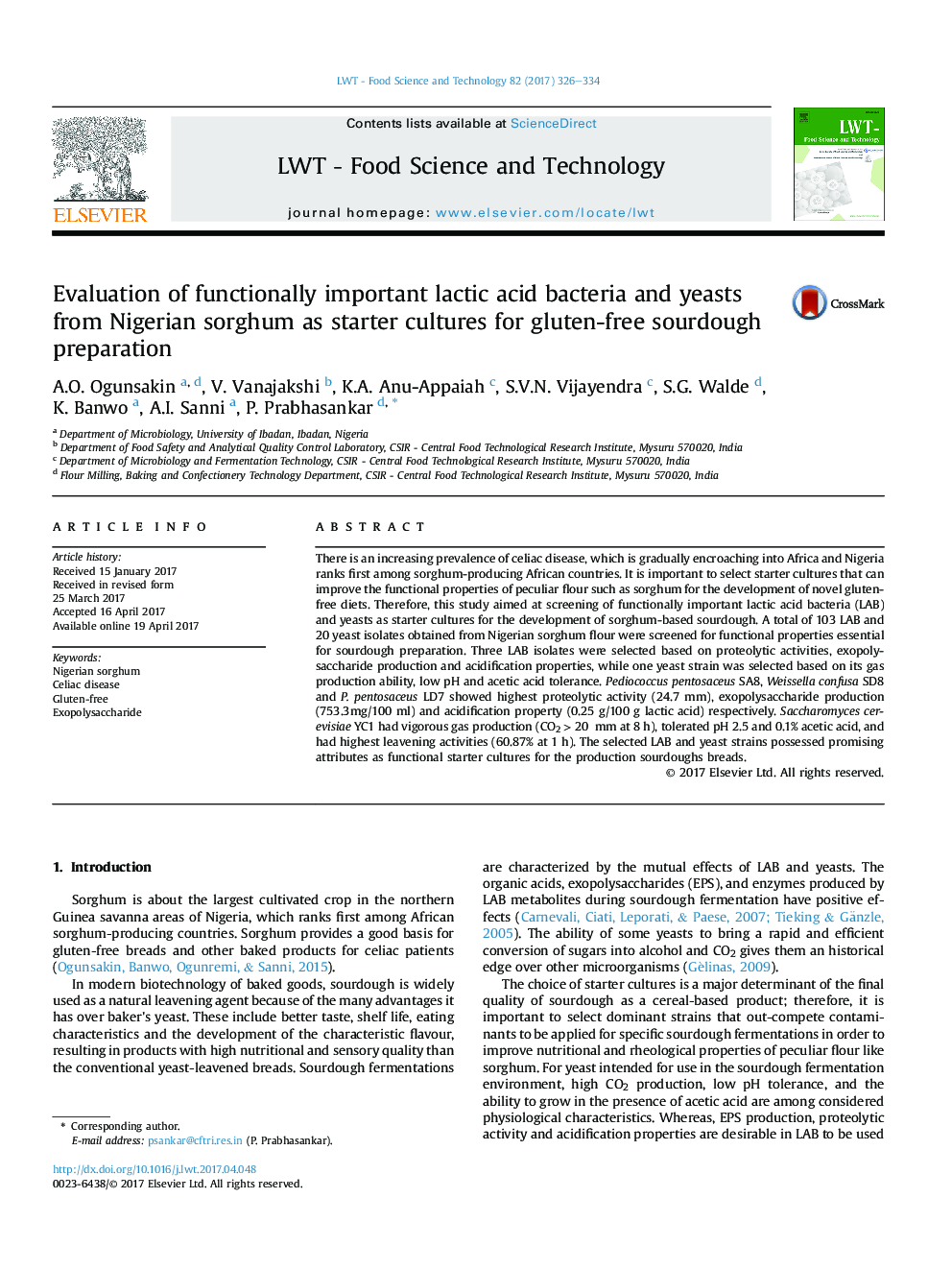| Article ID | Journal | Published Year | Pages | File Type |
|---|---|---|---|---|
| 5769179 | LWT - Food Science and Technology | 2017 | 9 Pages |
â¢Autochthonous lactic acid bacteria (LAB) and yeasts were isolated from sorghum sponge.â¢Selected LAB and yeasts possessed technological attributes and qualified presumption of safety.â¢Native sorghum was used as ingredient for sourdough employing selected functional starters.
There is an increasing prevalence of celiac disease, which is gradually encroaching into Africa and Nigeria ranks first among sorghum-producing African countries. It is important to select starter cultures that can improve the functional properties of peculiar flour such as sorghum for the development of novel gluten-free diets. Therefore, this study aimed at screening of functionally important lactic acid bacteria (LAB) and yeasts as starter cultures for the development of sorghum-based sourdough. A total of 103 LAB and 20 yeast isolates obtained from Nigerian sorghum flour were screened for functional properties essential for sourdough preparation. Three LAB isolates were selected based on proteolytic activities, exopolysaccharide production and acidification properties, while one yeast strain was selected based on its gas production ability, low pH and acetic acid tolerance. Pediococcus pentosaceus SA8, Weissella confusa SD8 and P. pentosaceus LD7 showed highest proteolytic activity (24.7 mm), exopolysaccharide production (753.3mg/100 ml) and acidification property (0.25 g/100 g lactic acid) respectively. Saccharomyces cerevisiae YC1 had vigorous gas production (CO2 > 20  mm at 8 h), tolerated pH 2.5 and 0.1% acetic acid, and had highest leavening activities (60.87% at 1 h). The selected LAB and yeast strains possessed promising attributes as functional starter cultures for the production sourdoughs breads.
